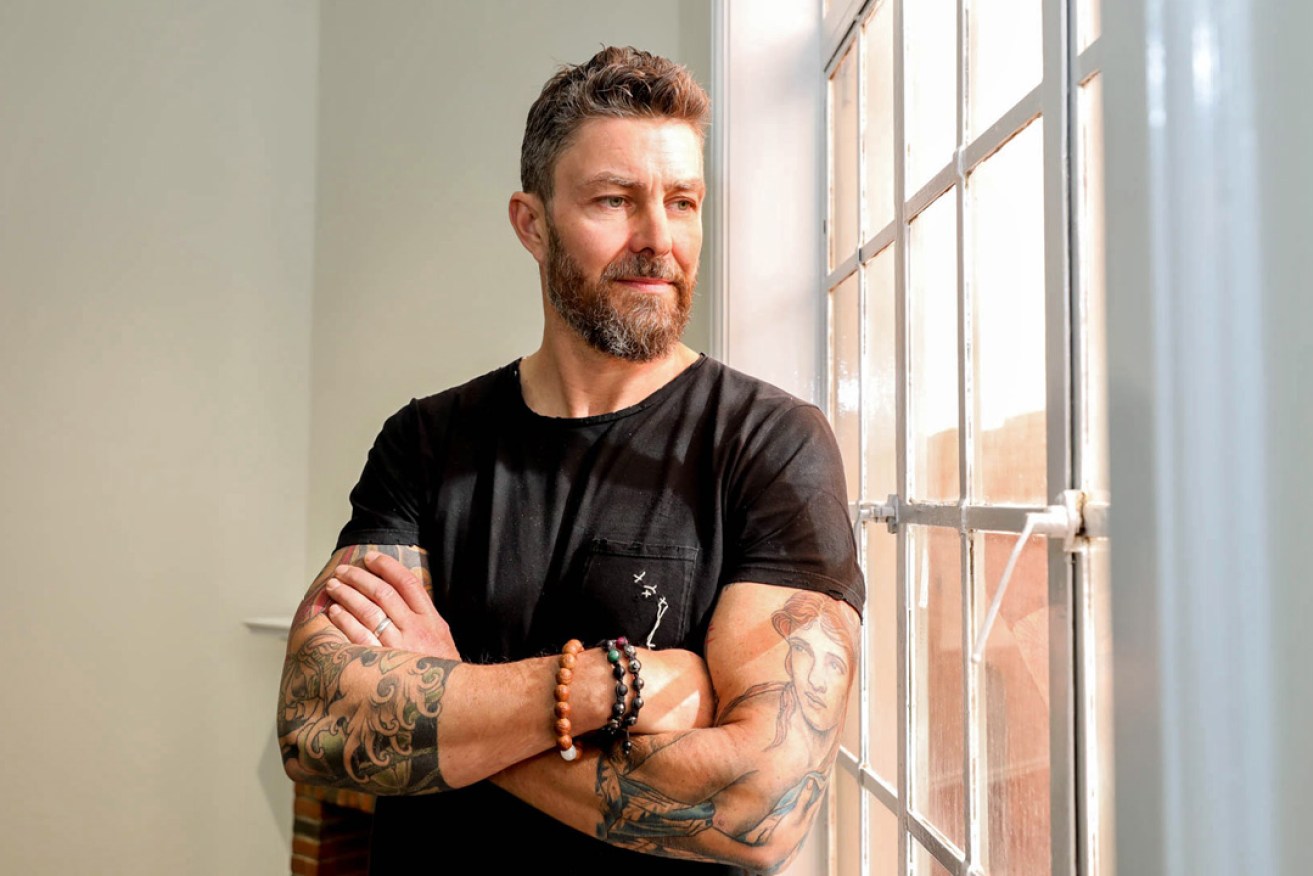Currie Street tower aspires to redesign the modern workspace
A developer will devote two levels of a new Currie Street tower to “gig economy” workspaces, hoping to pre-empt a commercial real estate future in which long-term leases for large numbers of full-time staff are a thing of the past.


Work Club founder Soren Trampedach. Photo: Russell Millard / InDaily
The 25-storey, $180 million dollar SIXTY2CURRIE hotel and office tower development was approved by state planning authorities last week.
Paul Rouvray, general manager of Axiom Properties Limited, has brought in “thought leader” Soren Trampedach to design and run what the developer believes will be the workplaces of the future.
Trampedach, a consultant to the likes of Facebook and Microsoft and founder of premium boutique workspace business Work Club, espouses a theory of the near-future workplace in which most employees are working several jobs at a time and in which industrial cross-pollination is the key to corporate success.
He told InDaily his philosophy was based on Leonardo Da Vinci’s insistence on designing his personal and professional network to be as diverse as possible.
“The whole thing is built on diversity of industries and disciplines,” he said.
“In our first club in Sydney, there are more than 55 industries represented – everything from the very conservative end of town through to creative.
“Da Vinci … was very calculative about who he surrounded himself with, because he felt diversity in his local network elevated the quality of his works.
“That’s the core idea behind what we do.”
He said disruption and change was a constant and that “if you work in your own tribe, industry, network, whatever you like, you’re less likely to find answers”.
I don’t think companies are going to be committing to large spaces for 10-year leases – which is also going to make it really hard to build office buildings, because banks won’t like it
Trampedach is an optimist about the gig economy.
He said that while 40 per cent of jobs we know now may be gone in the future, the opportunities are endless, and workers will benefit from not being “stuck” in one particular project, working for one particular company
“Some people will say losing 40 per cent of jobs is a disaster – but I think more jobs are going to get created.
“You can look at it from two sides.
“There’s a lot of uncertainty – that’s horrible – but with anything, you can look at it from a positive perspective or a negative perspective.
“The positive is that I believe there’s going to be enough opportunities – enough jobs – for you to work on projects that are of interest to you and not get stuck in one thing all the time.
“It’s increasingly becoming that way.”
Work Club’s design – down to the office furniture – is meant to make a statement about standing the test of time, for businesses that are constantly changing.
“Every single piece of furniture is from a small workshop or it’s from people that we know – it’s made to last 20, 30, 40 years,” he says.
“It’s made of solid timber. It’s made of raw leather. Our partitions are steel. It will last.
“It’s not going to scream 2020 or 2021 from a design perspective. It’s going to be as timeless as possible.”
Rouvray agrees with Trampedach’s vision of the future workplace, and sees Work Club as future-proofing against the impacts of the gig economy on commercial real estate development.
“I don’t think companies are going to be committing to large spaces for 10-year leases – which is also going to make it really hard to build office buildings, because banks won’t like it,” he said.
“So I think we’re getting in at a good time.”
He said businesses increasingly needed to be much more flexible in both their output and operations, and that workspaces need to cater for that.
“I think it’s a combination of not quite knowing, not being set on your company vision as much.
“Even at Axiom, we had 20 employees five years’ ago, now we’ve got three, but we’re busier – but we outsource everything.”
A brochure for SIXTY2CURRIE says that its office spaces will be designed to accommodate “Adelaide’s highest office density ratio this means more staff in less space without sacrificing comfort”.
“The design makes possible a ratio of one person per eight square metres, if desired.”
Rouvray says that Axiom must continue to cater to the “typical corporate”, which values the efficient use of office space to minimise costs.
But he expects that market to shrink quickly in coming years.
“In five years time there might be more than two levels of space there, hopefully run by Soren,” he says.
“We’re marketing the rest to your typical corporate.
“We have to demonstrate that we can.
“(But) I’d be surprised if our 10 levels of office wasn’t five levels of this type of space within this type of space within five or six years, because I think that’s where the world’s going to, which I think is a good thing.”




